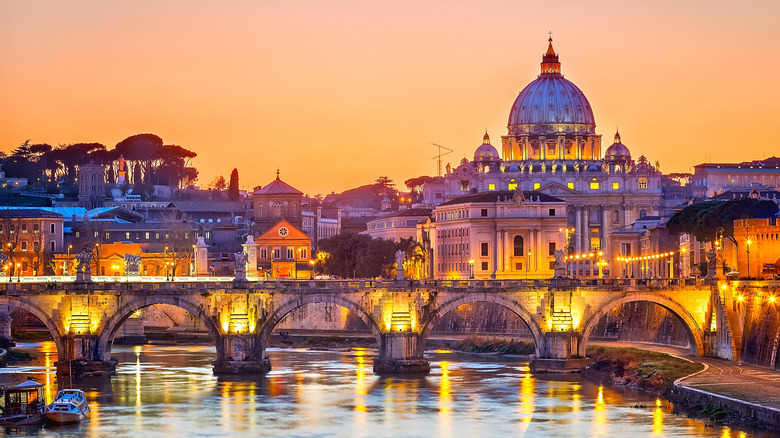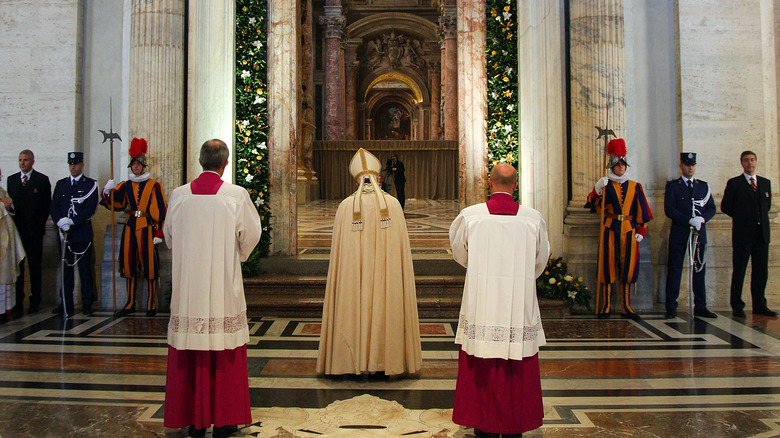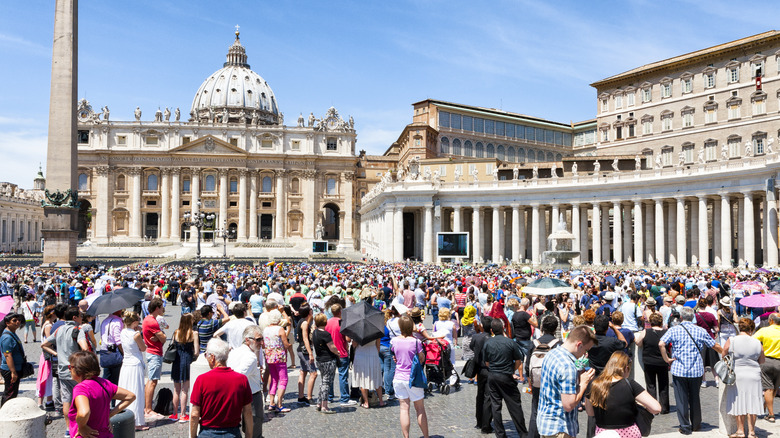The Unexpected Reason You May Want To Avoid Planning A Trip To Rome In 2025
For well over 1,000 years, Rome has captivated people around the world and it continues to hold significant influence even in the 21st century. From art and history lovers to architects and religious devotees, the city draws millions of visitors each year. Tourists regularly pack the streets around places like the Trevi Fountain and the Spanish Steps, and wait in long lines to see the Colosseum. While Rome does still have some hidden gems for tourists who hate crowds, 2025 is projected to mark a particularly busy time for the Eternal City.
Vatican City is one of Rome's biggest draws for tourists, but as the headquarters of the Roman Catholic Church, it is also a place of pilgrimage for followers of this religion. Every 25 years marks a Holy Year for Roman Catholics, also called a Jubilee. While Catholics make pilgrimages to Vatican City at any time and in any year, the Catholic News Agency predicts that around 35 million pilgrims will travel to Rome by the time the 2025 Jubilee ends. This is usually the number of visitors in total rather than just accounting for those visiting for religious purposes.
What is a Jubilee in Roman Catholicism?
The 2025 Jubilee will last from December 24th, 2024 to early January 2026 when Catholics celebrate the Epiphany, an annual holiday also called Three Kings' Day. During a jubilee year, Catholics can ask the church for a plenary indulgence. This means that the church can alleviate one's potential consequences or punishments for their sins. Such jubilees date back to biblical times and encourage kind acts, reconciliation, and commitment to God.
Pope Francis will kick off the 2025 Jubilee in Rome by ceremoniously opening the Holy Door to St. Peter's Basilica (Basilica di San Pietro). The other papal basilicas in Rome with Holy Doors are the Archbasilica of St John Lateran, the Basilica of St. Paul Outside the Walls, and the Basilica of St Mary Major. These doors are only open during jubilee years and are the passageways to obtaining plenary indulgence. Jubilee years feature celebrations specific to age, occupation, and other groups throughout the year as well.
More crowds could mean higher prices and longer lines
Historically, the months leading up to jubilee years see extensive preparation to spruce up the city. With 2024 as no exception, major improvement and repair projects are well underway. Construction crews are making use of billions in public funding to fix pavement, add bike lanes, and increase the city's 5G infrastructure for wireless devices. These updates are for the benefit of the entire city, but traffic diversions from the construction have been cumbersome and timelines for these projects are lengthy.
With major city planning changes and so many extra visitors to the city, it could be difficult to find affordable lodging. Other tourist attractions could have even longer lines than usual too. For the remainder of 2024 and all of 2025, perhaps some 'dupe' cities instead of Rome are worth a visit. With historic structures from the Roman Empire reaching far and wide across Europe and the Mediterranean, alternatives include Plovdiv in Bulgaria and Lyon in France, a city which Rick Steves loves for being non-touristy. Both cities feature plenty of Roman ruins and might prove to be more affordable given the increase in hotel demand that Rome will experience during the Jubilee.


